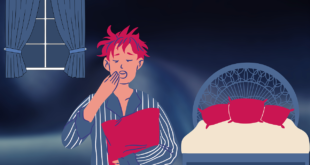
If you have ever traveled overseas and happened to bump into a Somali fellow in an international airport, you must have noticed his redundant friendliness. Somalis are very friendly to one another, especially when they meet abroad and people around outnumber them. Like any other language, Somali language has specific expressions and words when it comes to addressing strangers.
It is very common saying assalamu alaikum (peace to you or peace be upon you), which is a traditional greeting among Muslims, to the people you don’t know, friends, family members, colleagues, and acquaintances. If you want to get someone’s attention, you can simply say fiiri, walaal (look, brother). I think the English expression of excuse me, sir/madam can be a loose translation of fiiri, walaal. Walaal, which literally means ‘brother’ is super common to use for addressing someone – male or female – you don’t know. Huunno is used in some regions instead of walaal. If you have the guts and want to address a stranger in a friendlier way, you can say abboowehiis (dear brother) or abbaayadiis (dear sister).
Sometimes people address strangers with their titles if they know. Guddoomiye
(head) and agaasime (director) are very common titles among government
officials. It is normal to call police officers and soldiers taliye (commander).
In the private sector, people use maamule, which means manager. At times,
addressing strangers in Somali can be very tricky and complicated; and this can
be something that Somali shares with other languages. Needless to say that calling
an elder person you don’t know, probably, will differ from addressing a strange
young person. People usually address elder male persons as adeer which
literally means paternal uncle. If you want to call an elder female person, you
can simply say eeddo (paternal aunt), though it can be viewed as rude in
some regions. Some people try to avoid using “eeddo,” and instead use habaryar
(maternal aunt).
Generally, young peer people tend to be friendlier and less formal among themselves and even to others. If it happens to be addressed by a young taxi driver as saaxiib (friend) or abti (maternal uncle), don’t lose your bearings; be calm because he is not trying to get your goat. While walaal is used for both males and females, abbaayo (sister) is exclusive for females. However, the word “abbaayo” can be regarded as a regional dialect.
The abundance of words that are used to address male is really
puzzling me. Does this have something to do with patriarchy? Maybe. Who knows?
Look at this: boos (boss), macallin (teacher), kaabbo (boss
in Italian – capo), injinneer (engineer). People can be addressed as
“macallin/injinneer” even if their profession isn’t. It is normal to call
strangers you have just met using the name of their profession. For example, xildhibaan
(parliamentarian), injinneer (engineer), ditoor (doctor), and
barfasoor (professor).
If you want to
address a young boy or someone who is younger than you, you can call him yariisow/yarka
(young man/lad) and yarta (young lady) for a young girl.
People in other cultures might have some difficulties when approaching strangers. On the contrary, in Somali (culture), it is not so complicated to address someone you don’t know. It is very normal to see Somalis in restaurants or lounges who break the ice by asking one another about the latest political news. A friend was telling me the other day that he noticed a waiter who served them listening to their confabulation. The waiter engaged in their conversation and began to comment! My friend was very surprised because no one found that odd.
Shaakir M. Cabdullahi
Shamaca.com
 Daryeel Magazine
Daryeel Magazine


